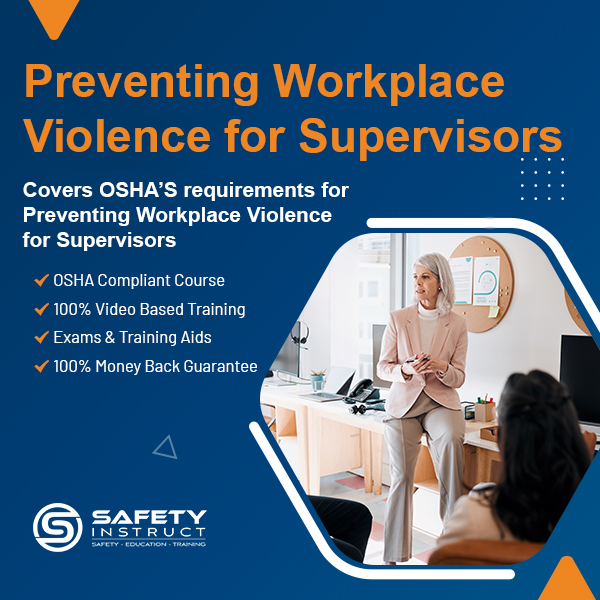No Products in the Cart
Click Here to Schedule a FREE Consultation
Phone: 866-943-6887 Email: sales@safetyinstruct.com



Workplace violence is a pressing issue that affects employees and organizations across the globe. As supervisors, it is crucial to gain a clear understanding of workplace violence, its various forms, and the profound impact it can have on both individuals and the workplace environment.
Legal Considerations and Risk Assessment
Legal and ethical considerations in today's workplaces are crucial for supervisors, who must navigate both legal standards and ethical principles to ensure employee well-being. Legal obligations, such as the Occupational Safety and Health Act (OSHA) in the United States, mandate risk assessment, preventive measures, and employee training to address workplace violence. Ethically, supervisors must uphold a duty to comprehensively protect employees, prioritize trust and reputation, and recognize individuals' unique needs, creating workplaces that are not only legally compliant but also morally and ethically responsible.
Communication, Conflict Resolution, and Reporting
Supervisors play a pivotal role in fostering a positive workplace by employing effective communication, conflict resolution, and adept handling of difficult conversations. Proactive conflict prevention strategies and the encouragement of reporting concerns contribute to a cohesive and secure work environment. Ensuring anonymity, educating employees, and enforcing non-retaliation policies are vital elements for building trust and maintaining a culture of reporting.
Employee Training and EducationSupervisors collaborate with human resources to develop and enforce workplace violence prevention policies, ensuring clarity and open communication. They actively contribute to periodic policy reviews and updates, promoting adaptability to changing needs. In emergency planning, supervisors lead the development of response plans, emphasizing the importance of regular drills for employee safety.


